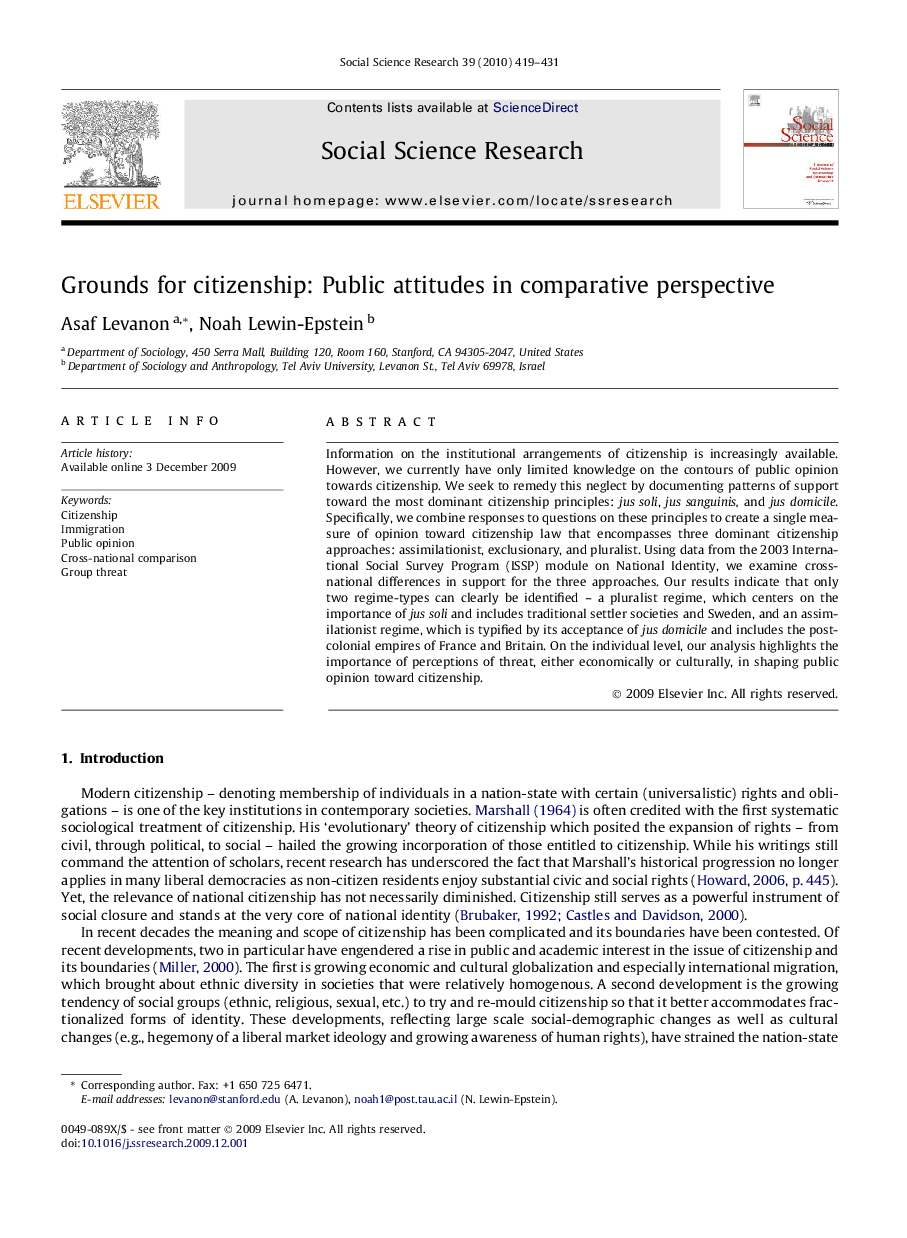| Article ID | Journal | Published Year | Pages | File Type |
|---|---|---|---|---|
| 956276 | Social Science Research | 2010 | 13 Pages |
Information on the institutional arrangements of citizenship is increasingly available. However, we currently have only limited knowledge on the contours of public opinion towards citizenship. We seek to remedy this neglect by documenting patterns of support toward the most dominant citizenship principles: jus soli, jus sanguinis, and jus domicile. Specifically, we combine responses to questions on these principles to create a single measure of opinion toward citizenship law that encompasses three dominant citizenship approaches: assimilationist, exclusionary, and pluralist. Using data from the 2003 International Social Survey Program (ISSP) module on National Identity, we examine cross-national differences in support for the three approaches. Our results indicate that only two regime-types can clearly be identified – a pluralist regime, which centers on the importance of jus soli and includes traditional settler societies and Sweden, and an assimilationist regime, which is typified by its acceptance of jus domicile and includes the post-colonial empires of France and Britain. On the individual level, our analysis highlights the importance of perceptions of threat, either economically or culturally, in shaping public opinion toward citizenship.
